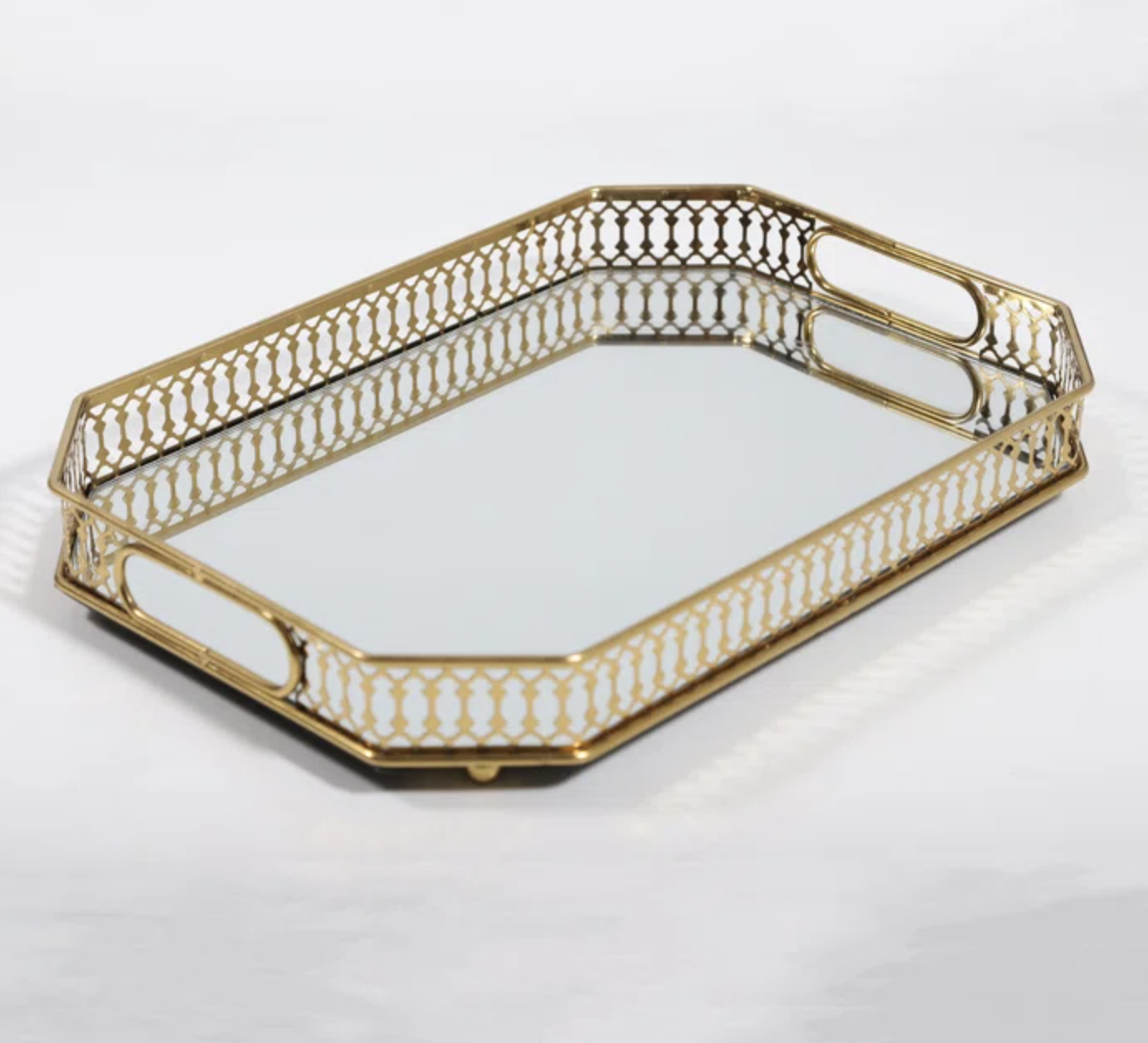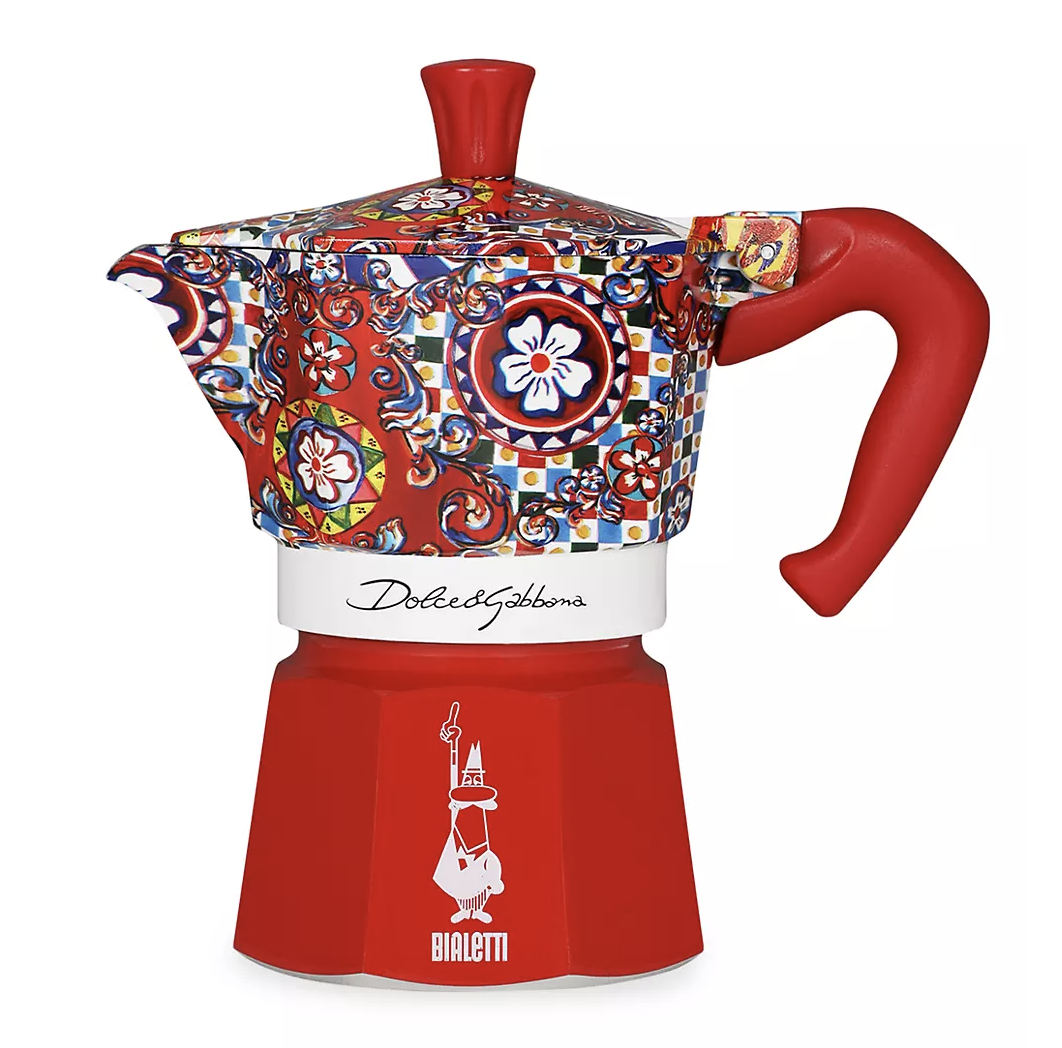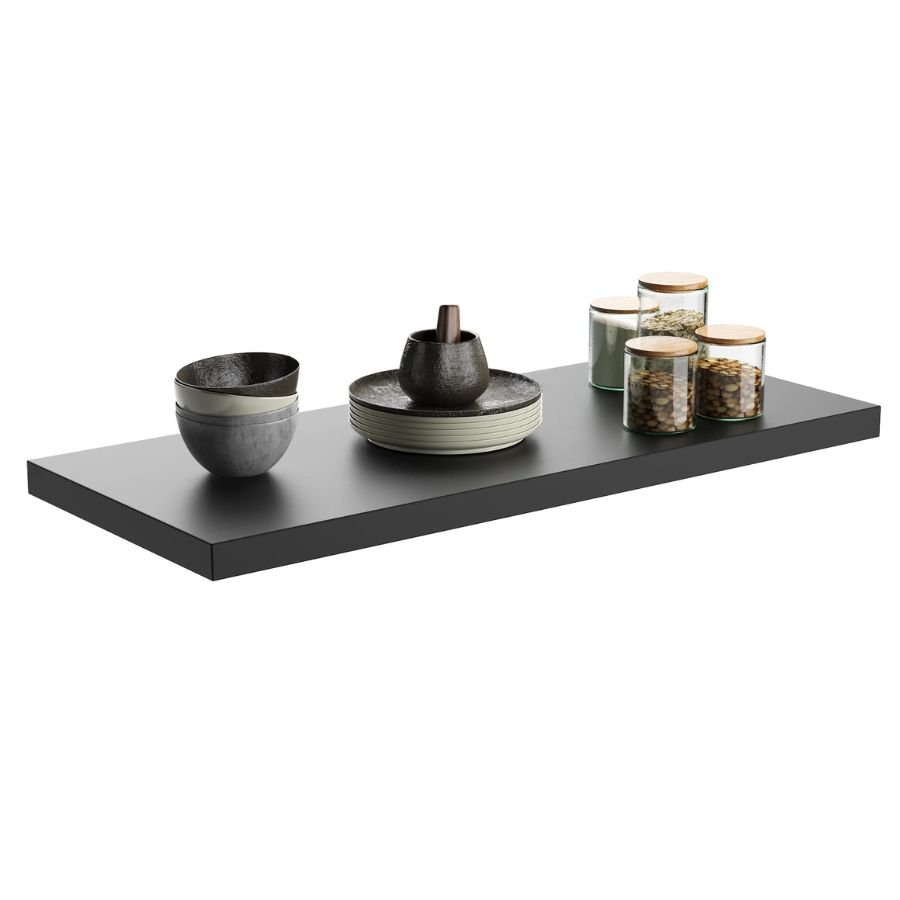How to Decorate Kitchen Countertops Without the Clutter — Designers Share Their Style Secrets
There is a fine line between decor and clutter, so where do we draw it? We ask the kitchen experts
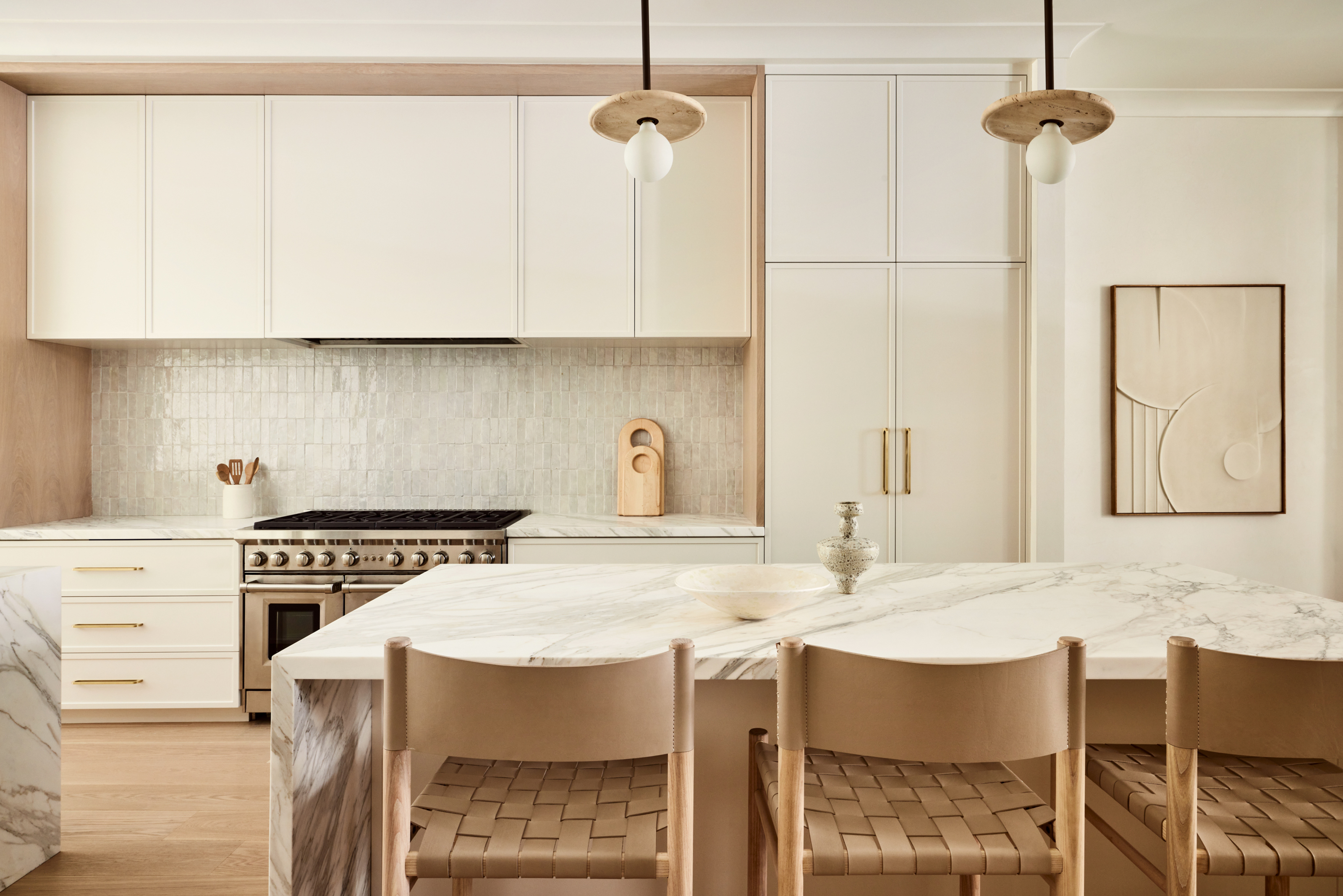

Kitchen countertops are one of those destinations in the home that can quickly evolve into dumping grounds. The kitchen is typically a busy, bustling space, and items inevitably build up, cluttering your beautiful countertops and often bringing a chaotic energy to the space. Recent kitchen trends have seen decor creeping into this part of the home. Artfully placed wooden chopping boards, color-pop appliances, and even well-framed artwork can transform even the most sterile all-white cubes into a room that is bursting with character. But there is a fine line between decor and clutter, so how do you make sure that your kitchen countertops look well-decorated but not overly busy?
For Sammy Kairouz, director of interiors at C. Kairouz Architects, decorating all comes down to understanding visual clutter and where the eye rests in the kitchen. ‘Consider the background and the foreground. When styling, step back and look toward the kitchen,’ advises Sammy. ‘Placing an item on the countertop and then on the back bench in the same position can create too much visual bulk. Consider balance and offsetting pieces to find the right visual harmony between elements.' For some other practical tips, we've spoken to the experts about how to decorate a modern kitchen all the while reducing clutter. Here are their top takeaways.
1. Factor in storage
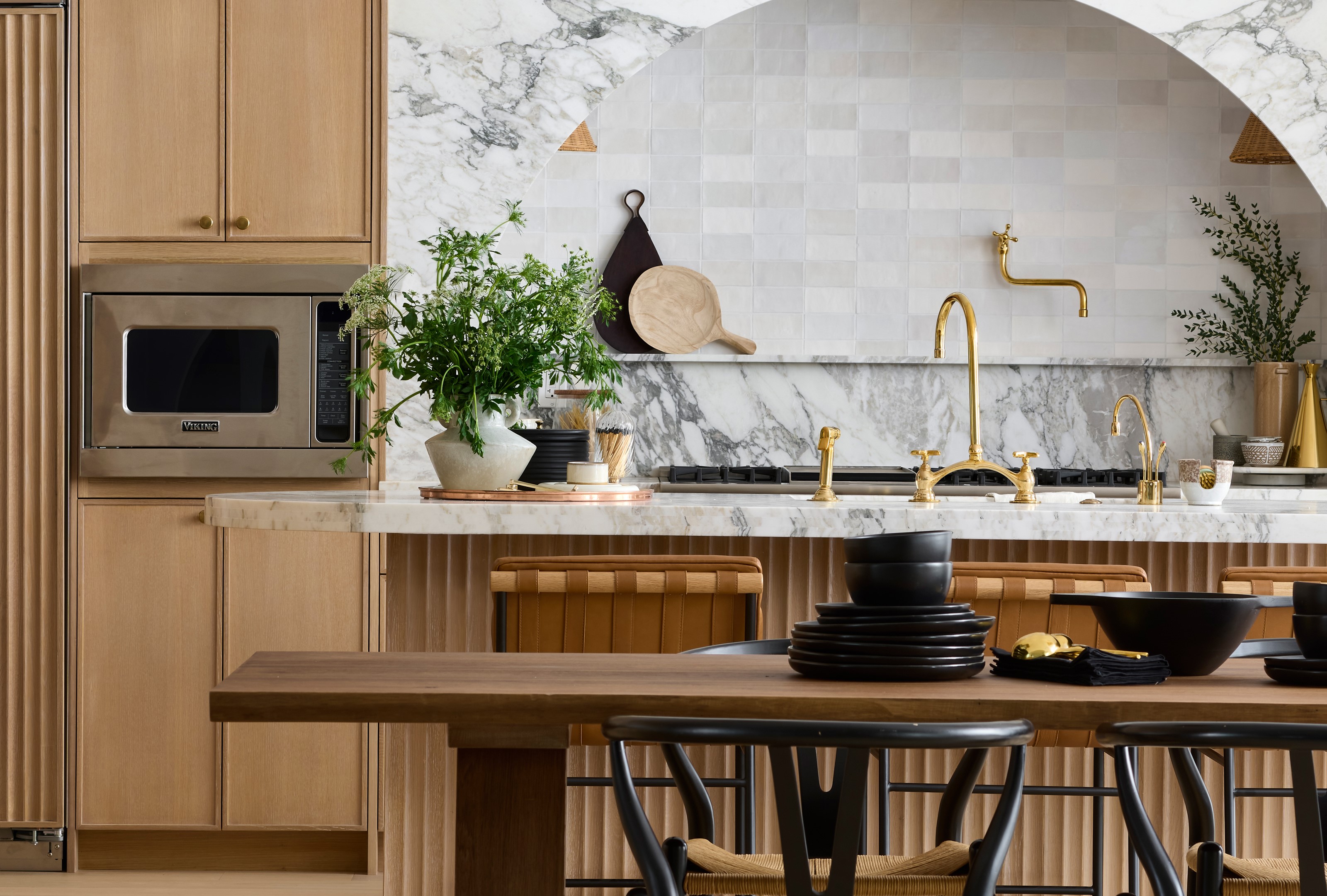
First up, you need to consider how you can make space for the decor. There is no use adding decor to an already overflowing countertop. Instead, you need to focus on how to stow away those bulky appliances and kitchen essentials. ‘Concealing appliances, cables, or completely stowing away items, will serve these spaces positively, providing a clutter-free work and entertaining space,’ says Sammy Kairouz, director of interiors at C. Kairouz Architects.
Sara Horstmann of Das Studio agrees. 'Loose everyday appliances like a kettle, toaster, or coffee machine need to be easily accessible but also easily hidden away. We typically design our kitchen storage to include an appliance hutch or cupboard with retractable or fold-away doors where these items can live, leaving the rest of your countertop free for activities or more visually appealing styling that suits your kitchen’s aesthetic.'
If a complete kitchen re-design isn’t on the cards, or you’re living in a rental, Sara also recommends repurposing a piece of pre-existing furniture. 'A tall TV cabinet with concealing doors will do the trick as a great freestanding appliance cabinet against a blank wall within your kitchen space (provided you have access to power nearby),' says Sara.
As well as those bulky appliances, consider those fiddly wires that often clutter up surfaces. If you're redoing your kitchen or in the process of designing, always carefully consider where to place those outlets and plug sockets. 'Utilizing concealed wire mold under the upper cabinets is a great way to address cable management and countertops,' says Christopher Fein of FORWARD Design.
2. Invest in a catch-all tray or bowl
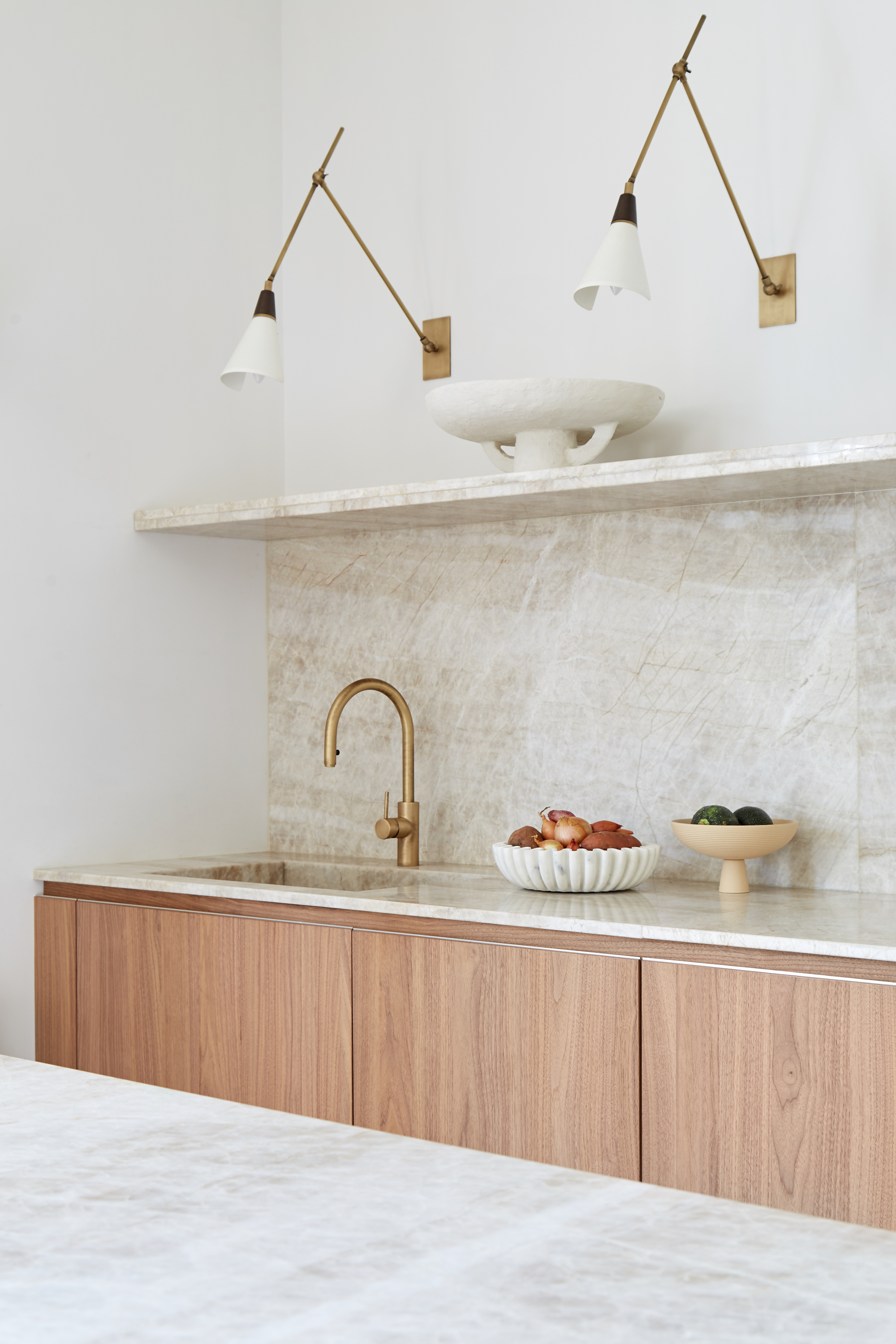
If you're trying to banish kitchen countertop clutter but want to introduce some decor, think small. Investing in a catch-all tray is a great place to start. It gives all that inevitable clutter a home, a dedicated zone to stash the stuff, rather than letting it spread out onto your countertop. A tray also offers up the opportunity to get decorative with your countertops.
Use your kitchen tray as a mini vignette and tap into your creative side. 'If smaller items need to be out placing them on a tray, gathers the items together and makes them feel like a visual group and less like clutter,' says Chris. Think about those small items you want to have to hand while cooking (salt and pepper, a butter dish, olive oil, for example).
3. Have your functional items double as your decorative pieces
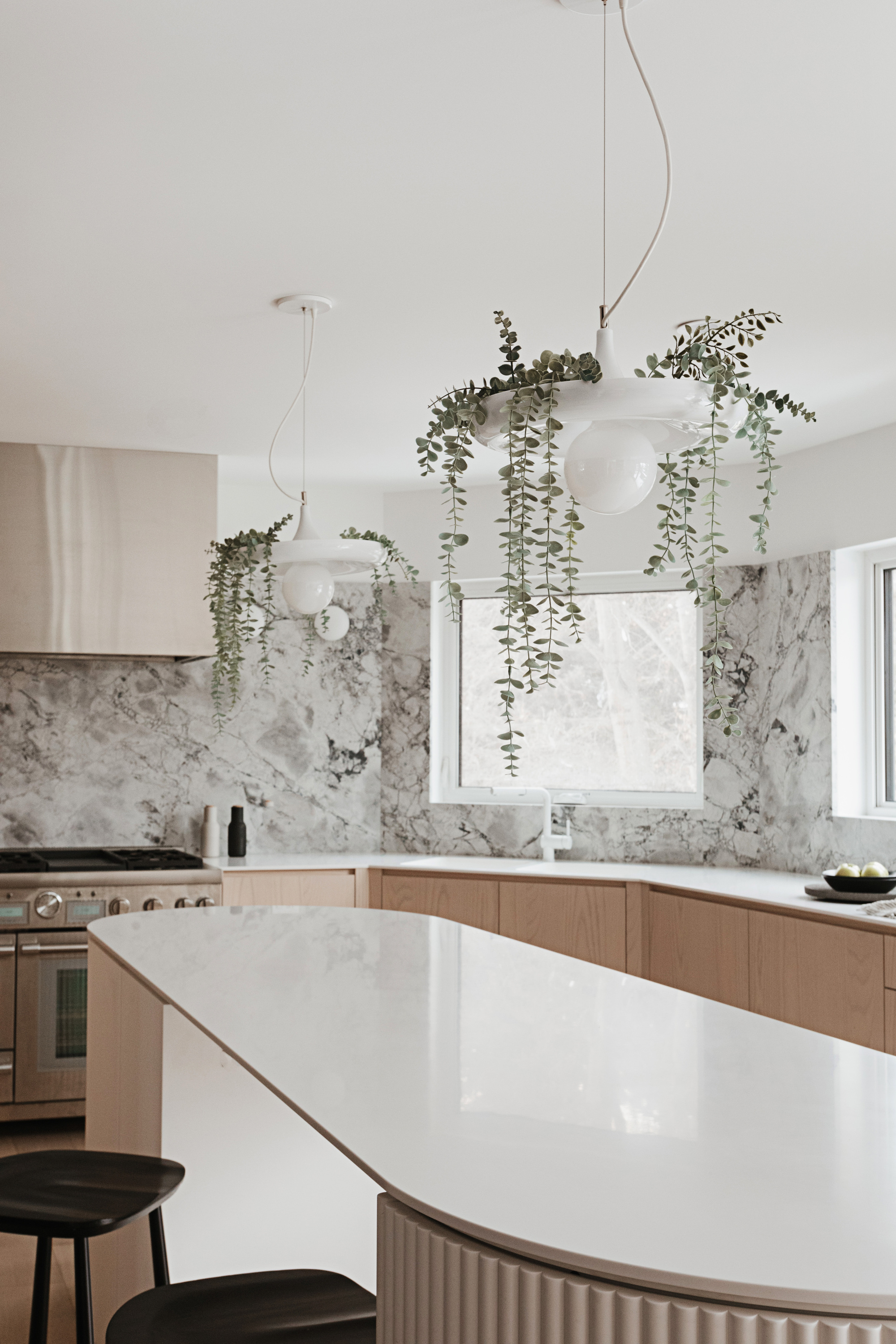
When designing new kitchens, Nancy Surby of minimalist studio, Nako Design finds that homeowners have 'decluttered and functional' at the top of their lists. For Nancy, it's important to define exactly what you see as clutter as this varies per person. To tackle this issue, go for highly used items that are both ornamental and functional.
'The decor items used in our Wolfhangenhaus minimalist kitchen (above) tend to double as the functional elements of the kitchen. Being mindful of your selections is the key. From the soap dispenser for the kitchen sink, to a dish or salt and pepper dispensers, we recommend getting creative with your arrangements of cooktop utensils.'
'Your kitchen is a utility space and called to work at short notice,' adds Luke Moloney of Luke Moloney Architecture. 'Make sure the things that you reach for daily are as beautiful as you can manage - it's a simple way of bringing small moments of joy to each day.'
4. Move decor upwards
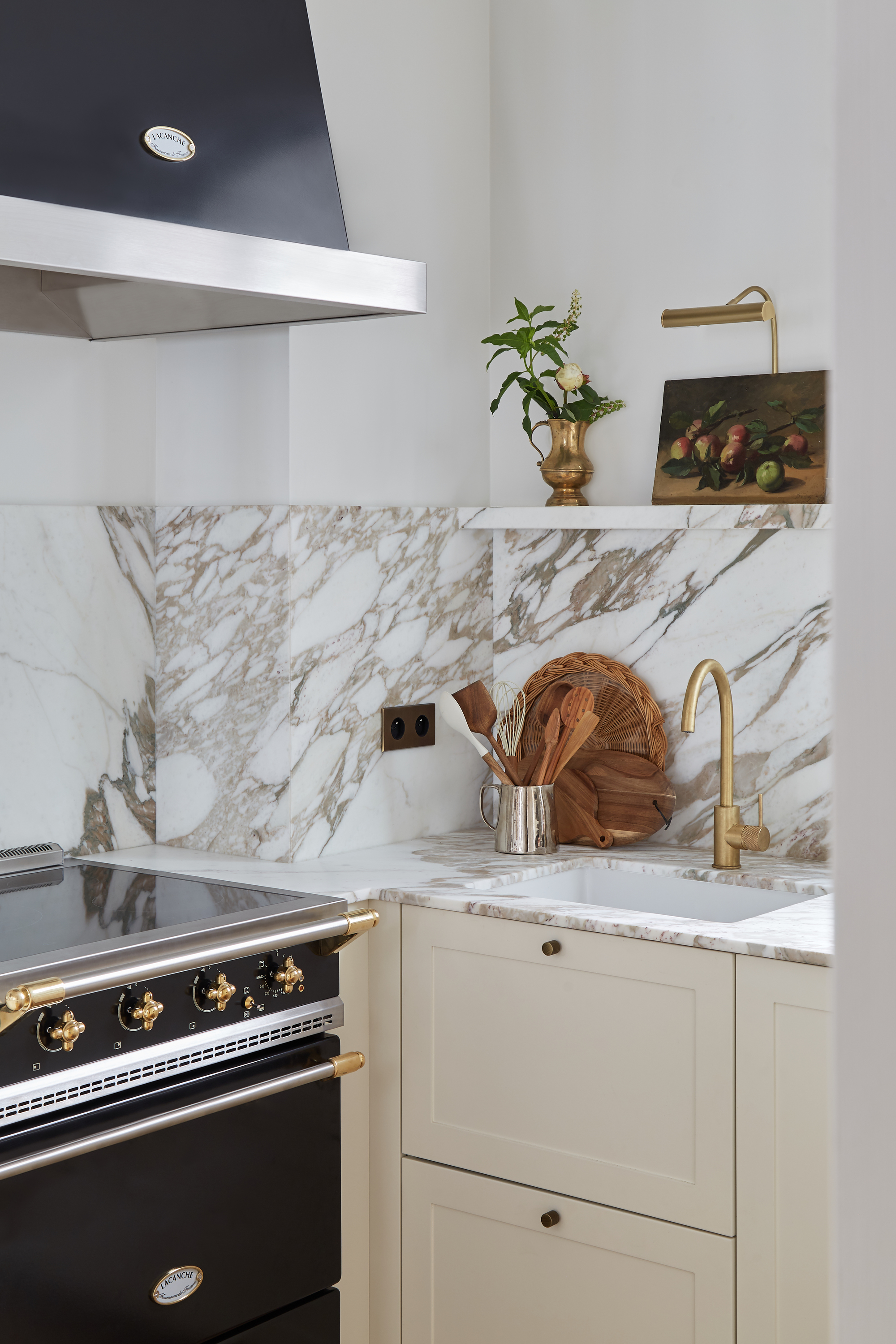
Think about where your eye sits in the kitchen, and consider moving the decor upwards to a floating shelf. I love the floating shelf look as it affords you so much more space for decor, all the while keeping your kitchen countertops clear for kitchen chopping and food prep.
'Embrace open shelving in the kitchen and introduce a couple into your design,' advises Nancy. 'They provide a beautiful opportunity to get everything off the counter and up to eye level. Have fun mixing and matching personal collectibles, the everyday use cookbooks, and feel free to swap things out according to the seasons. These are a sure way to infuse your personality into your own space.'
5. Adopt a 'less is more' tactic
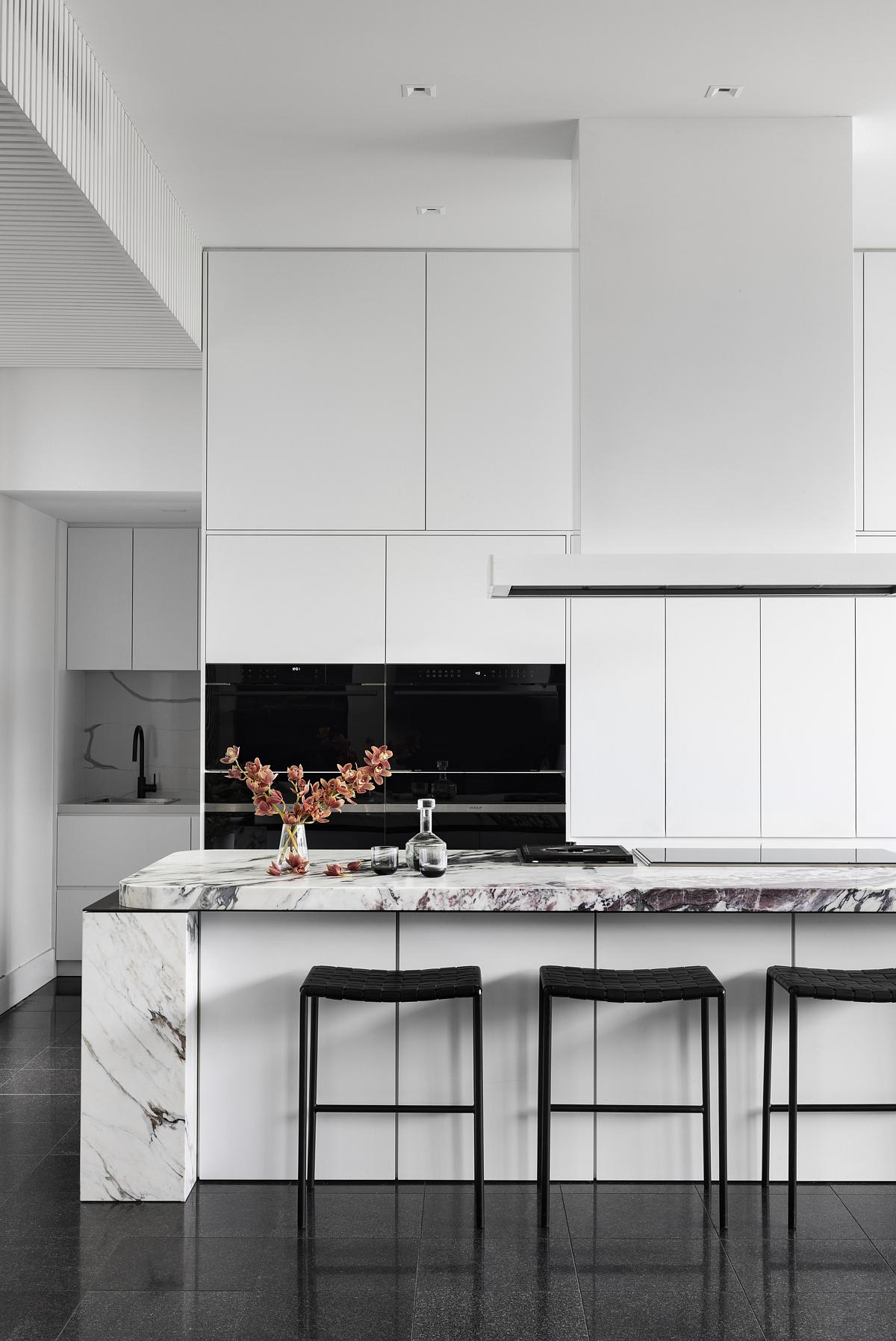
To keep things decluttered, rely on only a few items to provide decor, rather than going all out with plenty of decorative pieces. Less is more, according to Priya Mitrovic of Studio Pinteriors, who enlists the help of the color wheel in the kitchen. 'I try to select a few objects that play off the kitchen color scheme, for example, a bowl with a white outer shell and white oak inlay that connects to a white faucet and light oak accent cabinets,' says Priya. 'I also always integrate at least one vase with fresh florals for that organic element. Another tip is to group items in pairs as the repetition of an item creates a type of harmony in the decor.'
Sammy similarly advises against too much ornamentation, and erring on the side of caution. 'Please stay away from fake anything,' he says. 'Ornamentation for the sake of it, is artificial and can detract from the design, cheapening it rather than enhancing it.'
'With our Albert Park Kitchen (above) and its vibrantly colored stone, we have chosen to keep styling to a minimum, and let the stone and other materials and forms speak for themselves, rather than have “stuff” sprawled across the countertops.
'By layering handpicked tonal, orchid stems and a Tom Dixon Decanter set that has a variety of heights, creates a balanced and sophisticated vignette that feels authentic to the space.'
3 decorative buys for a clutter-free kitchen
Be The First To Know
The Livingetc newsletters are your inside source for what’s shaping interiors now - and what’s next. Discover trend forecasts, smart style ideas, and curated shopping inspiration that brings design to life. Subscribe today and stay ahead of the curve.

Former content editor at Livingetc.com, Oonagh is an expert at spotting the interior trends that are making waves in the design world. She has written a mix of everything from home tours to news, long-form features to design idea pieces, as well as having frequently been featured in the monthly print magazine. She is the go-to for design advice in the home. Previously, she worked on a London property title, producing long-read interiors features, style pages and conducting interviews with a range of famous faces from the UK interiors scene, from Kit Kemp to Robert Kime. In doing so, she has developed a keen interest in London's historical architecture and the city's distinct tastemakers paving the way in the world of interiors.
-
 These Are the Flower Crowns I’m Wearing This Spring (Spoiler: They’re Actually for My Door)
These Are the Flower Crowns I’m Wearing This Spring (Spoiler: They’re Actually for My Door)Coachella confirmed the comeback of flower crowns. At home, they just go by another name: the spring wreath
By Julia Demer
-
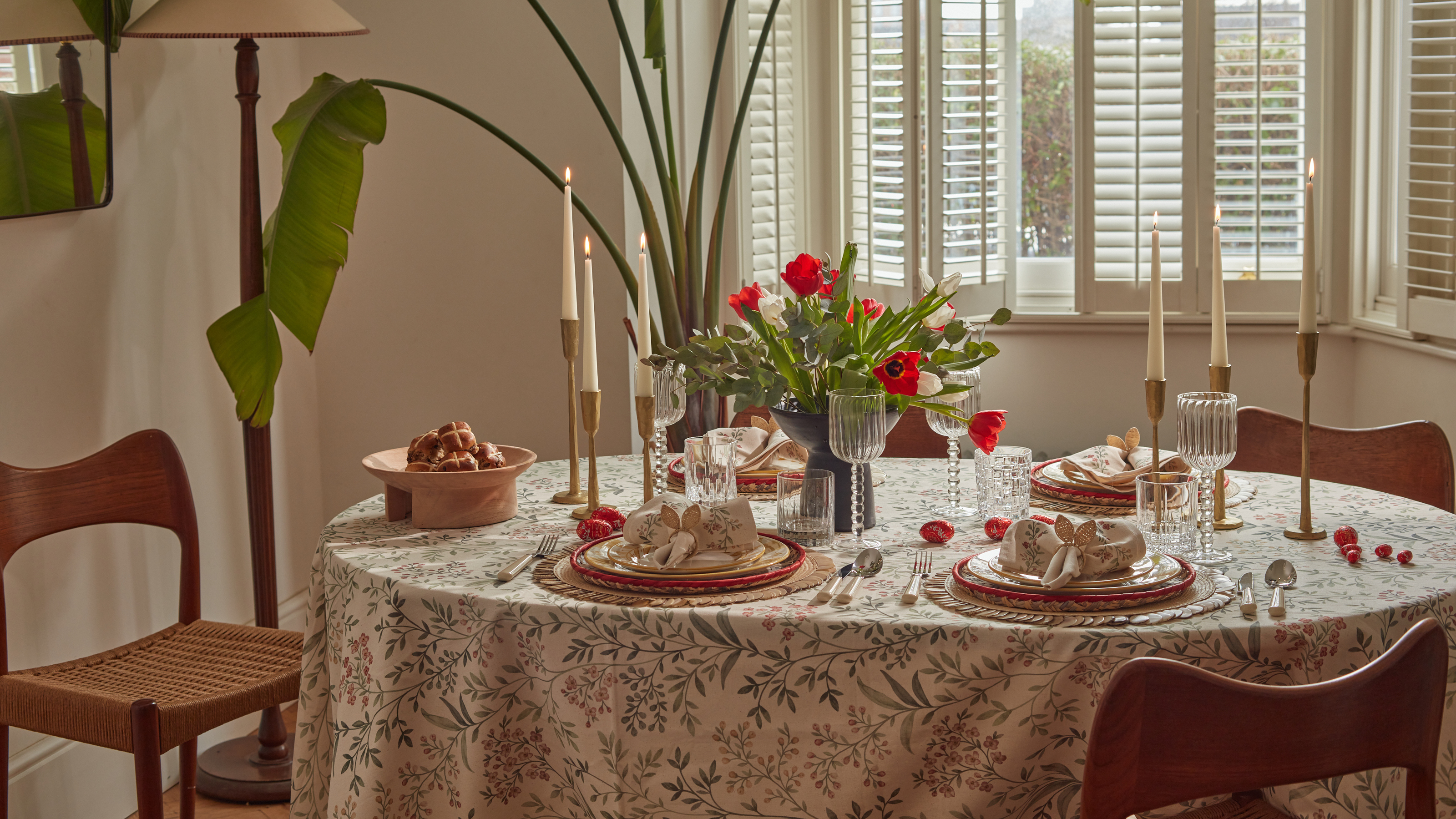 Bunny Ears, Be Gone — 7 Easter Table Styling Mistakes That Will Take Your Setting from Tawdry to Tasteful
Bunny Ears, Be Gone — 7 Easter Table Styling Mistakes That Will Take Your Setting from Tawdry to TastefulFrom fussy floral displays that disrupt conversation to over-relying on tacky tropes, don't fall victim to these errors when decorating your Easter table
By Lilith Hudson
